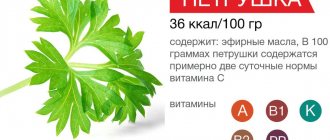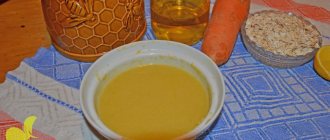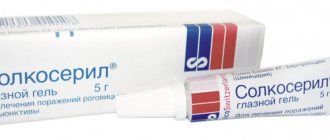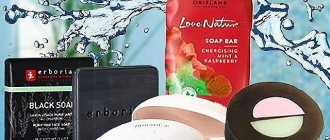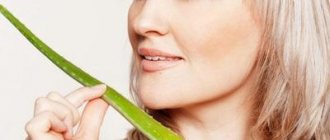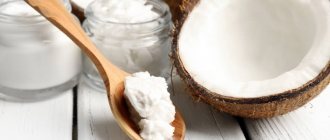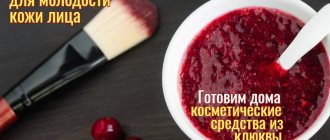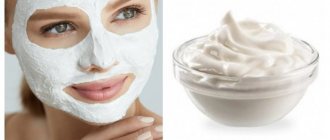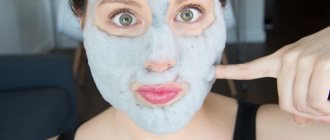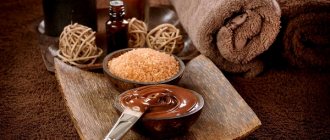Many people like the taste of fruit like kiwi. Everyone has tried it, many know about its benefits for the body. But, did you know that kiwi is also used in cosmetology, and quite successfully. Logically, you can decide that if this exotic fruit benefits the body from the inside, then it will be useful from the outside.
As part of cosmetic masks, this fruit has a nourishing, tonic, healing, moisturizing and soothing effect on the skin. Thanks to the vitamins it contains, namely vitamins E and C, the skin becomes elastic, tightened, and fine wrinkles are smoothed out. But, only with regular use. It won’t be that you make a face mask from kiwi and immediately feel the miraculous effect.
Kiwi face mask recipes
When using kiwi masks on your face, be sure to use the exact amount of additives and strictly follow the instructions. It is advisable to conduct a standard test for individual sensitivity to the components of the mask. This is especially true for those with sensitive and irritation-prone skin.
Sour cream mask with kiwi
Mash half a banana with a fork. Then do the same with 1 kiwi. 2 tbsp will help you mix these two purees. l. sour cream. Apply the mixture to your face, and then remove everything by washing with warm water after 15 minutes. This mask will moisturize dry skin and saturate combination skin with nutrients. It is preferable to use homemade sour cream.
Union of green clay with emerald kiwi
1 tbsp. l. green clay diluted with 1 tsp. olive oil. After thoroughly mixing these components, add 1 egg white and 1 medium-sized ripe kiwi. This mixture of components will have a beneficial effect on oily skin prone to rashes and excessive shine. After 15 minutes, remove the mask by washing with cool water. Don't forget to apply your daily cream to your skin.
Cottage cheese mask with kiwi
There are only 2 necessary ingredients in this mask. Namely 0.5 kiwi and 1 tbsp. l. cottage cheese. But, the result with regular use will significantly change your attitude towards home cosmetology. After mixing the ingredients, apply the resulting composition to your face and wait 25 minutes. After completing this stage, move on to the next one and remove the mask using warm water.
Honey mask with kiwi
To make such a skin-friendly soufflé, mash the kiwi with a fork and add 1 tbsp. l. honey to your taste. Apply the mask on your face in a thick layer, and after 20 minutes remove it with a cotton pad soaked in olive oil. Afterwards you need to wash your face. If your skin feels a little tight, apply a moisturizer. This wonderful soufflé for sagging and aging skin will serve a useful purpose in the form of light tightening and smoothing of shallow wrinkles.
Kiwi extract in cosmetics
Kiwi is a truly unique fruit: stuffed to the brim with ascorbic acid, this fruit works real miracles in cosmetic preparations! A variety of kiwi extracts act as brightening, nourishing, moisturizing, yet soothing ingredients. Such cosmetics provide the skin with the necessary nutrients (microelements, vitamin complexes) and are an ideal natural aid in skin care.
The possibilities of kiwi fruit extract in cosmetics are endless. 9122
Synonyms: Actinidia Chinensis Fruit Extract, Kiwi Extract, Actinidia chinensis (kiwi) seed, Kiwi Gel, Actinidia Chinensis (Kiwi) Fruit Extract, Vegetable water of Kiwi, Actinidia Chinensis Fruit Juice Kiwi Fruit Fiber, Actinidia chinensis (Kiwi) Fruit, Kiwi Fruit Seed Oil, Actinidia Deliciosa Fruit Extract. Patented formulas: Gatuline® Spot-Light, Akofruit® Kiwi, Kiwi Gel Discontinued, Kiwi seed, Pulps Kiwi Discontinued, Extrapone® Kiwi, Morechem Kiwi Extract, Kiwi Berry Extract, Carruba-Kiwi Extract, Kiwi Exfoliator 1000, Original Kiwi Extract, Xirona ® Kiwi Rose, Fresh Cells™ Kiwi PFE, Kiwi Seed CO2-to extract, BioCrystal™ Kiwi Fruit Powder FD, PromaEssence® KE (Powder 10:1), Synerlight™ 2.
Effect of kiwi extract in cosmetics
The kiwi fruit contains more vitamin C than any citrus fruit, and it also contains high concentrations of all B vitamins. This fruit is also rich in sodium, potassium, iron, phosphorus, magnesium, beta-carotene and a variety of acids. In addition, kiwi contains a unique enzyme actinidin, which breaks down proteins and has a beneficial effect on blood vessels, for example, strengthening the walls of capillaries. So, thanks to its rich vitamin and mineral content, kiwi has found wide application in cosmetology.
In particular, this component is one of the most important herbal agents that eliminate hyperpigmentation, even deep and multiple ones. Perhaps kiwi fruit extract can be considered the safest and at the same time the most effective skin-lightening agent: on the one hand, it exhibits an effect in intensity that is not inferior to hydroquinone, on the other hand, unlike this synthetic aggressive compound, kiwi extract does not carry the risk of developing unwanted side effects . However, lightening is far from the only option for kiwi in cosmetics: extracts and powder of various parts of the fruit, as well as kiwi seed oil, can satisfy the needs and solve any problems of any skin type.
Due to the high content of organic acids, kiwi extract has active moisturizing and exfoliating properties, works great as a tonic that improves the bioavailability of creams and masks. Cosmetics containing various kiwi components have exceptional tonic and rejuvenating properties. The mineral composition of kiwi, as well as B vitamins, make it possible to use this component as a powerful anti-stress agent, a relaxant, after which the skin takes on a healthier appearance and becomes less susceptible to irritation. The high concentration of fruit acids allows the use of preparations based on kiwi juice as a powerful anti-age agent: kiwi fruit extracts strengthen the skin and smooth out fine wrinkles, even out skin texture, eliminate unevenness, spots, accelerating healing and recovery from inflammatory reactions, plus exhibit antimicrobial properties . And the content of a whole cocktail of powerful antioxidants in kiwi fruits allows it to be used as a nourishing and strengthening component in sunscreen formulas.
Kiwi extract has a beneficial effect not only on the skin - when used in medicated shampoos and masks, it has a beneficial effect on the condition of the hair, making it more manageable, smooth and silky. Well, fruit acids, together with vitamin C, which kiwi is so rich in, in creams or foot peels help to successfully cope with calluses and corns.
Who is kiwi extract indicated for?
Kiwi extract is recommended in skin care products for rosacea and telangiectasia, venotonic creams and gels, and decongestants. In general, the main indications for the use of kiwi are as follows:
- As a means of combating hyperpigmentation.
- To restore skin color and tone.
- To stimulate regeneration processes in the skin as an anti-age agent.
- To smooth out skin texture.
- For rosacea - as a venotonic.
- For acne (as an antimicrobial and anti-scarring ingredient).
- To reduce the severity of symptoms of keratosis pilaris.
In hair care, kiwi extract will be useful for hair that is oily at the roots and dry at the ends. It will gently and delicately cleanse the scalp of sebaceous deposits and dead cells, tone the scalp and, at the same time, moisturize the dry ends of the hair.
Who is contraindicated for kiwi extract?
Any kiwi-based ingredient is safe. A strict contraindication is an individual hypersensitivity reaction.
Cosmetics containing kiwi extract
Kiwi contains a wide range of cosmetic products - from peelings to nourishing masks or anti-aging creams. Recommended dosages: creams, masks, lotions, serums with a moisturizing and softening effect for the care of dry skin: 2-12%; concentrated serums to combat age spots: 15-30%, anti-cuposis agents: 3-15%, active moisturizing agents: 8-10%; products for softening rough skin: at least 15%; shampoos and hair conditioners, hair cleansing: 3-10%.
Sources of Kiwi Extract
Kiwi is a human invention, a fruit obtained through artificial selection. About a century ago in New Zealand, a variety based on actinidia, a Chinese plant, bearing large berries with a pleasant-tasting pulp was bred - it was called Chinese gooseberry. (Interestingly, the tree-like vine of the genus Actinidia was grown exclusively for decorative purposes.) It was subsequently renamed “kiwi”, since the fruit resembled the body of this bizarre bird. Today, this exotic hairy fruit is popular in many countries and the geography of its cultivation is quite extensive: Italy, Spain, Greece, Japan, and the USA. It grows naturally in subtropical and temperate tropical latitudes, although today it is grown in many countries, including Ukraine (on a non-industrial scale). Kiwi has one peculiarity: it is a very moisture-loving plant; during the period of active growth it consumes up to 5 liters of water per day.
Actinidia chinensis 9140
Two varieties of kiwi are used for the production of cosmetics, Actinidia deliciosa and Actinidia chinensis. (From 3.2 kg of raw materials, 1 kg of extract is produced.) As a rule, the extract from the fruit is obtained by extraction under high pressure with a natural source of carbon dioxide, which does not contain impurities of solvents, inorganic salts and heavy metals, as well as active microorganisms. Fruit water obtained from the core of kiwi fruit through flash distillation has a higher biological affinity for the skin.
Essential peeling with kiwi
Grind a medium-sized kiwi until pureed, add essential lemon oil. Oil should be added in the amount of two drops. You should be very careful here, since adding more oil than indicated in the recipe can cause a chemical burn. So, apply this composition to the skin and after 15 minutes you need to wash everything off. After peeling, the skin will be a little tight; the poet should moisturize it with cream. The effect will become noticeable when peeling is applied to the facial skin 2 – 3 times a week.
Don't forget that every person is different, so is their skin type. Although there are several main skin types, don't forget that your skin has its own individual characteristics. By listening to it, you can feel which component is right for you and which one should not be added at all. No one has canceled the test for the likelihood of allergies. Therefore, do not take risks and test the resulting mixture on your wrist. It will only take 15 minutes, but it will protect you from unpleasant phenomena in the most visible place - your face.
Benefits of kiwi for the face.
Make yourself a kiwi mask and the results will not keep you waiting. The skin will brighten, acquire a beautiful shade, become fresh and more hydrated. Kiwi has this effect on the skin due to its unique composition.
- Vitamin C, which is contained in kiwi, has a positive effect on the skin, and it is also an antioxidant. It prolongs the youth of cells and promotes the production of new collagen fibers.
- Vitamin B1 has wound-healing and anti-inflammatory properties.
- Vitamin B2 renews cells and helps them better absorb oxygen.
- Vitamin B3 helps improve blood circulation in skin cells, plus it helps improve complexion.
- Vitamin E helps the pores close, thereby making the skin more toned and the pores less clogged.
- Iron, zinc, magnesium, calcium and other trace elements improve metabolic processes in skin cells, improve the appearance of the skin and help make the skin healthier.
Before using kiwi masks, you need to know the indications and contraindications of kiwi for use on the face. Kiwi masks will help cope with many problems, namely acne and blackheads. And thanks to the presence of fruit acids in kiwi, they will help tighten the pores on the face. Makes the skin firm and elastic.

